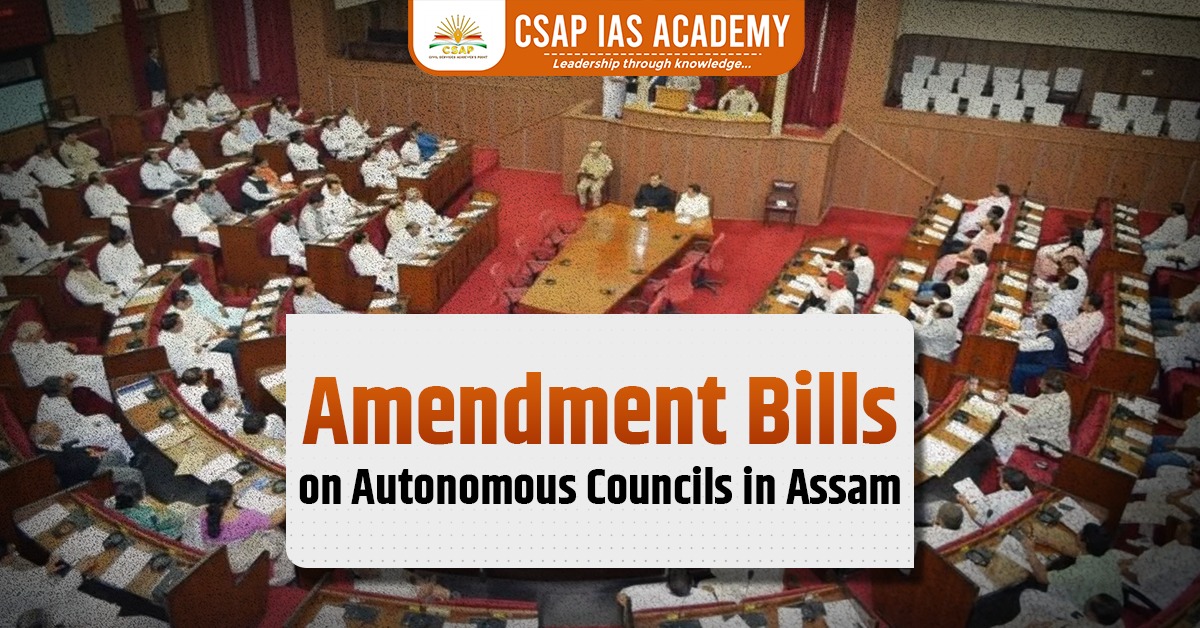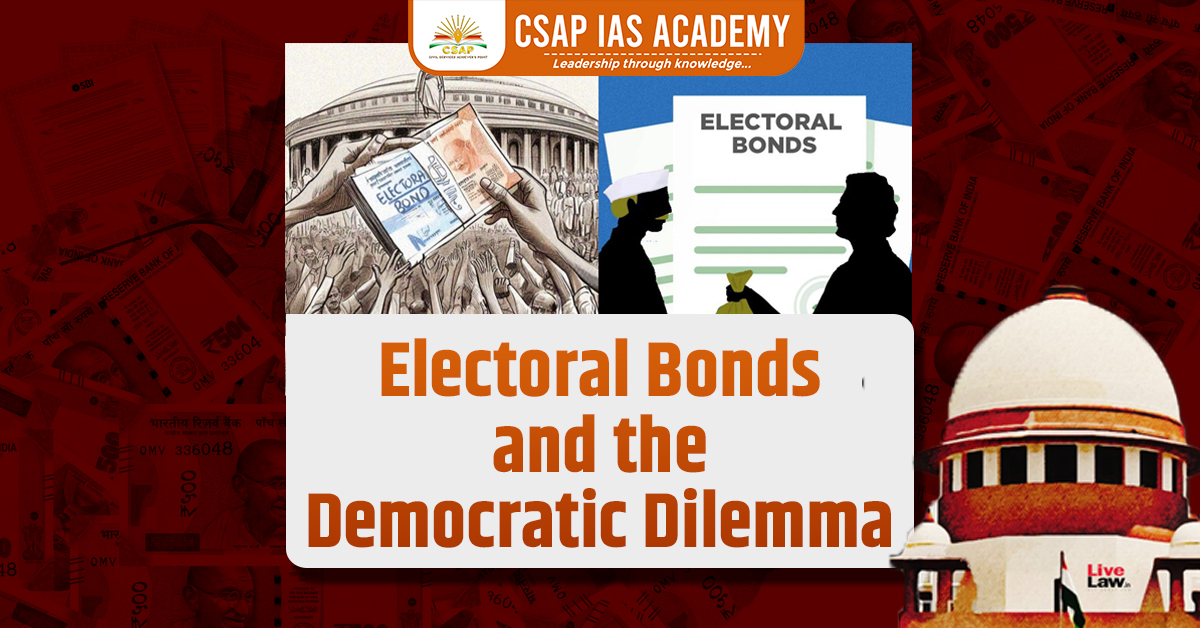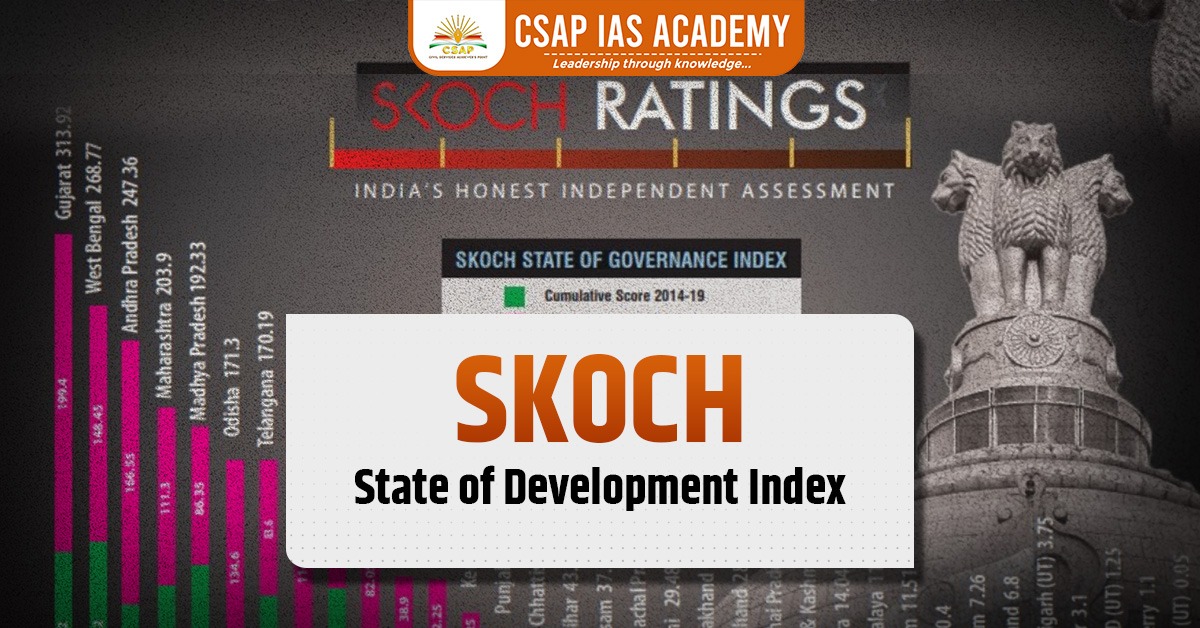Autonomous Councils in Assam have undergone a major legislative overhaul with the recent amendments passed by the Assam Legislative Assembly. These amendments grant the Governor the authority to take control of seven autonomous councils if elections are deemed impractical. While the move aims to ensure administrative continuity, it has sparked debates over the erosion of self-governance and increased state intervention. In this article, we analyze the key provisions, constitutional basis, and the potential impact of these amendments on Assam’s tribal communities and governance framework.
Amendment Bills on Autonomous Councils in Assam
The Assam Legislative Assembly passed amendment bills concerning seven autonomous councils, allowing the Governor to assume control if elections are deemed “impractical.”
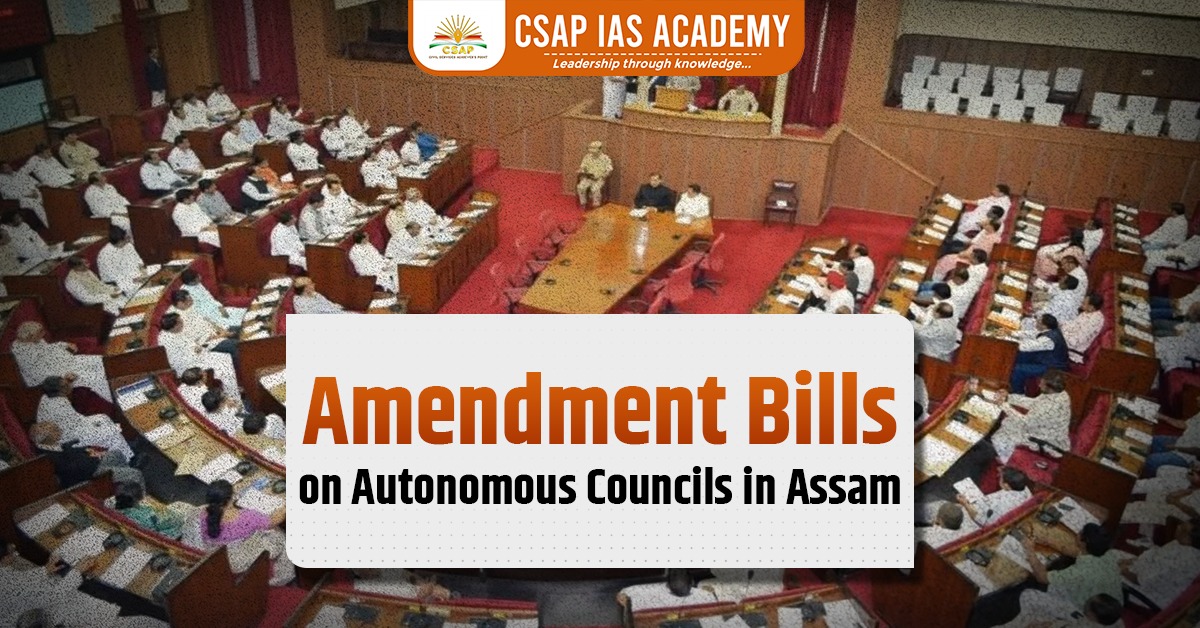
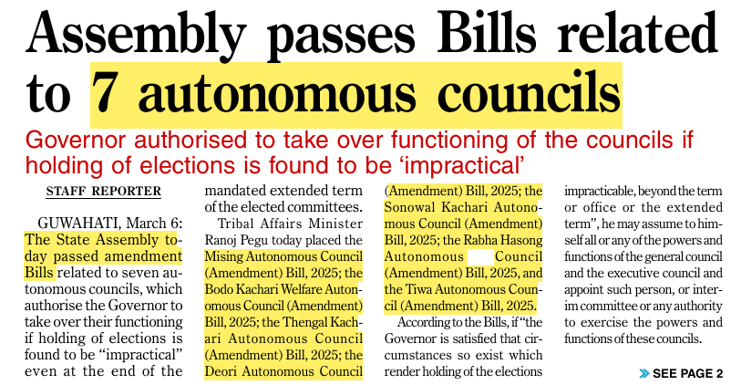
Key Highlights
- Amendment Bills Passed:
- The Mising Autonomous Council (Amendment) Bill, 2025
- The Bodo Kachari Welfare Autonomous Council (Amendment) Bill, 2025
- The Thengal Kachari Autonomous Council (Amendment) Bill, 2025
- The Deori Autonomous Council (Amendment) Bill, 2025
- The Sonowal Kachari Autonomous Council (Amendment) Bill, 2025
- The Rabha Hasong Autonomous Council (Amendment) Bill, 2025
- The Tiwa Autonomous Council (Amendment) Bill, 2025
- Provision for Governor’s Intervention:
- If elections cannot be held due to impractical circumstances, the Governor can take over the councils’ functions.
- The Governor can assume powers of the General Council and the Executive Council.
- He may appoint an interim committee or any authority to exercise the councils’ powers.
Significance:
- Ensures governance continuity in case of election delays.
- Strengthens state control over autonomous councils.
- Raises concerns about the dilution of autonomous councils’ independence.
Autonomous Councils in India
Constitutional Basis
Sixth Schedule (Articles 244(2) and 275(1))
- Provides for Autonomous District Councils (ADCs) in Assam, Meghalaya, Tripura, and Mizoram.
- Aims to protect tribal identity and culture through self-governance.
Fifth Schedule (Article 244(1))
- Governs Scheduled Areas in other tribal-dominated states.
- Does not provide for autonomous councils but allows special governance structures.
State Legislation
- States like Assam, Manipur, and West Bengal have created non-Sixth Schedule autonomous councils.
- Governed by state laws rather than the Constitution.
Presently, there are a total of ten ADCs in the four states:
- Assam: North Cachar Hills District, Karbi Anglong District and Bodoland Territorial Areas.
- Meghalaya: Khasi Hills District, Jaintia Hills District and Garo Hills District.
- Tripura: Tripura Tribal Areas District.
- Mizoram: Chakma District, Mara District, and Lai District.
Governor’s Functions
- S/he is empowered to organise and re-organise the autonomous districts.
- S/he can appoint a commission to examine and report on any matter relating to the administration of the autonomous districts or regions.
- S/he may dissolve a district or regional council on the recommendation of the commission.
Features of Administration according to the Sixth Schedule
- Membership: Each autonomous district has a district council consisting of 30 members (4 nominated by the Governor and 26 are elected).
- Tenure:
- Elected Members: Five years.
- Nominated Members: Hold office during the pleasure of the Governor.
- Regional Council: Each autonomous region has a separate regional council.
- The Acts of Parliament or the State Legislature: They do not apply to autonomous districts and autonomous regions or apply with specified modifications and exceptions.
The Assam Assembly has passed amendments affecting seven autonomous councils, allowing the Governor to take over their functioning if elections are deemed impractical. The amendments also introduce structural changes, such as seat increases in the Tiwa Autonomous Council.

